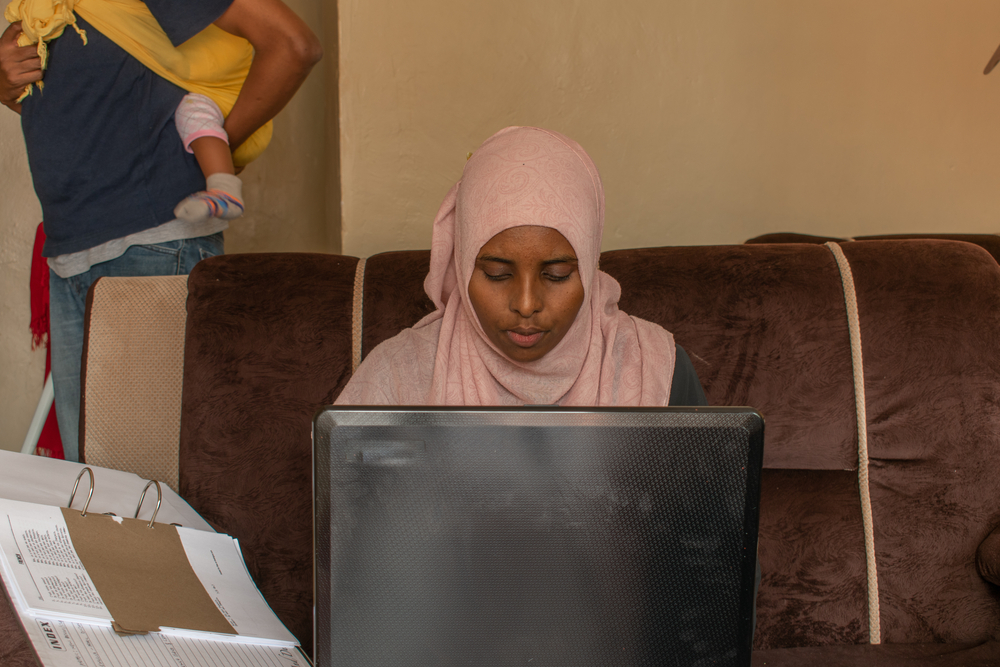
Is COVID-19 Challenging Stereotypical Gender Roles within Households?
Roles within families in all their diversity are changing; women and girls’ roles within these families are changing. While families have been viewed as the safest place for women and girls, it is this same space that is endemic with gender inequalities, oppression and violence against women and girls. It is also in these spaces that we are currently seeing changes in gender roles and how some men have been challenged to do more work in the households due to the COVID-19 lockdown, curfews and quarantine measures. Are these experiences and changes challenging gender social norms, roles and stereotypes? Are these changes temporary or long lasting?
With COVID-19 prevention measures in place including families being quarantined and in lockdown together, the roles that have mainly been taken up by women, men are now beginning to take up. What does this mean? Are we saying that COVID-19 is exposing and challenging gender stereotypes/roles?
Listening to Miriam narrate her experience prior to COVID-19, juxtaposed with the current circumstance, with her husband forced to act because, perhaps for the first time, he is experiencing and feeling the tremendous workload at home, made me think about this aspect of COVID-19 that must be addressed adequately. Saying all of this however, I am not oblivious to and deeply acknowledge the rising cases of gender based violence as well as rising conflicts due to increasing anxieties and adjusting to a new normal. While I can’t be conclusive and give exact statistics, anecdotal evidence, from Miriam and a number of other women, I realize that men are now doing more house chores than ever before. Is this a good thing?
For instance Miriam’s partner works at home and because of COVID-19, they were forced to tell the nanny who works on a daily basis to stop coming. They are both working from home, they need to homeschool their kids between the ages of 5 and 7, meals have to be prepared, dishes washed and the house tidied while at the same time trying to meet work deadlines. She tells me that the first few days she tried to be super woman and do all the work. Then one day, the food was late and the kids were hungry. There were dishes in the sink and being unable to handle it, she asked the husband to help. To her surprise he did – and it has since been the norm for weeks now. I had a number of questions. Should she have to ask for help before trying to do it all? She wondered why it happened now because even when they do not have help over the weekend or holidays, the husband does not lift a finger to do anything in the house. Has COVID-19 complexities, demands and new normal pushed men to do more within the household? Will this continue or patriarchy will take it back once the pandemic is over?
Most men in our communities have grown up and been socialized to believe that the majority, if not all household chores are women’s roles. Some were even chased out of the kitchen from a young age and told that the kitchen is the preserve of women and girls. However, now that they are stuck at home, they are beginning to be reminded what it means to parent children and manage homes. To some extent, COVID-19 has started to challenge gender roles, with some men beginning to take up roles that culturally and socially have long been designated ‘women’s roles’. Miriam’s story is not an isolated case, there are many other men that are now taking on household chores, however, while some are taking up these roles, others are responding with violence.
Numerous studies have been carried out that demonstrate the immense contribution of unpaid care work to households, communities, and the economy. The lack of recognition of unpaid care work as work that is contributing to economic growth continues to widen gender inequality and gender disparities. Every minute a woman spends doing unpaid care work is a minute less she will spend in leisure or income generating activities or investing in her education or personal and/or professional growth. As UNICEF has indicated, COVID-19 has highlighted the role of unpaid care work in times of crisis. While we are beginning to see a shift in the responsibilities taken up within households, data continues to show that care roles are still disproportionately undertaken by women and girls during COVID-19.
A lot more needs to be done to ensure a violent free home environment and more equitable burden sharing that is permanent and the norm, rather than situational.
Esther Kimani is the Founder/Director of Zamara Foundation, a feminist, women’s rights activist, a sexual and reproductive health and rights advocate and psychologist based in Nairobi.
